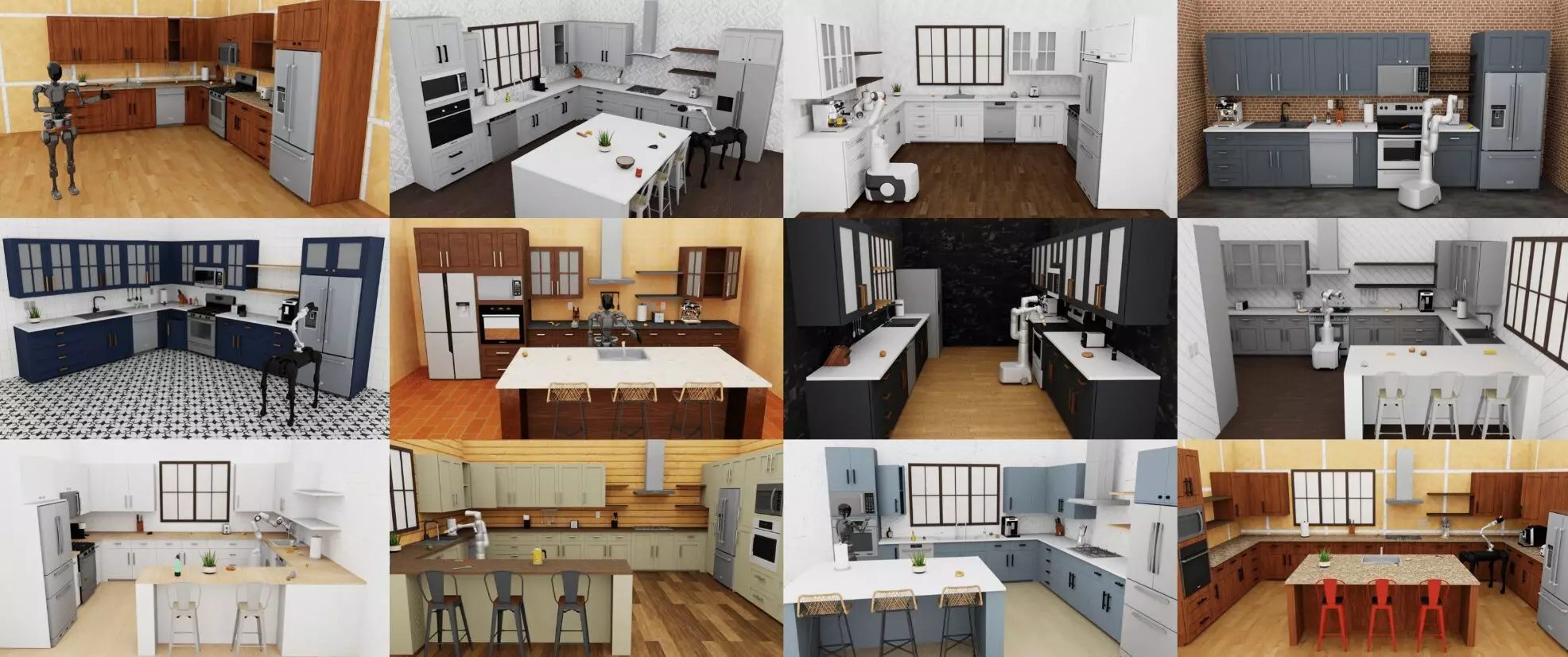Artificial intelligence (AI) tools have been playing an increasingly significant role in the development of robotics applications. Over the past few decades, the performance of AI tools such as natural language processing (NLP) and computer vision algorithms has seen significant improvements. One of the primary reasons for this progress is the exponential growth of datasets used to train these algorithms. While datasets for NLP and computer vision have seen massive growth, datasets for robot control and planning algorithms remain relatively scarce. This scarcity has prompted computer scientists to focus on creating larger datasets and platforms to train computational models for robotics applications.
A recent paper, which is set to be presented at the Robotics: Science and Systems 2024 conference, introduces a new platform called RoboCasa. Developed by researchers at the University of Texas at Austin and NVIDIA Research, RoboCasa is a large-scale simulation framework designed to train generalist robots in completing various tasks in everyday settings. The platform aims to provide high-quality simulation data required for training robotics foundation models.
RoboCasa includes thousands of 3D scenes with over 150 different types of everyday objects, furniture items, and electrical appliances. The platform features highly realistic simulations enriched using generative AI tools. Additionally, RoboCasa supports various robot hardware platforms and offers large datasets with over 100k trajectories for model training. The platform also includes 100 tasks for robotics algorithms to be trained on, along with high-quality human demonstrations for these tasks.
The research team behind RoboCasa discovered two key findings during their experiments. Firstly, they observed a scaling trend where increasing the size of training datasets led to a steady improvement in the model’s performance. Secondly, by combining simulation data with real-world data, they found that the augmented dataset enhanced the robot’s performance in real-world tasks. These findings emphasize the effectiveness of simulation data in training AI models for robotics applications.
Initial experiments with the RoboCasa platform have demonstrated its value in generating synthetic training data for training imitation learning algorithms. The platform, which is open-source and accessible on GitHub, could be used by other teams in the future for their robotics experiments. The researchers behind RoboCasa plan to continue expanding and improving the platform to enhance its usability within the robotics community. They aim to incorporate more advanced generative AI methods to expand simulations, capturing the diversity of human-centered environments like homes, factories, and offices.
The integration of artificial intelligence tools in robotics development has proven to be essential in advancing the field. Platforms like RoboCasa provide valuable resources for training robotics algorithms and AI models effectively. The findings from this research pave the way for further exploration and development in the realm of AI-driven robotics applications. As technology continues to evolve, the collaboration between AI and robotics is expected to drive innovation in various industries.


Leave a Reply